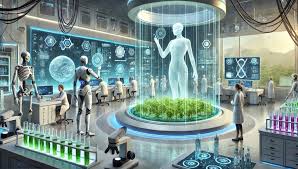ChatGPT publisher, OpenAI, has teamed up with a longevity startup to develop an artificial intelligence model dedicated to the study of stem cells. Their aim is to extend the normal human lifespan by up to 10 years.
OpenAI has developed a new artificial intelligence model in collaboration with Retro Biosciences. It aims to extend life expectancy by studying Yamanaka factors, a set of proteins capable of reprogramming adult cells into pluripotent stem cells. This exclusive model, GPT-4b micro, has been designed to pave the way not only for the regeneration of different cell types, but also for the creation of customized organs in the best-case scenario.
Also read: Human-inspired AI model can produce, understand vocal imitations of everyday sounds
This model has been specially trained to offer optimal modifications of Yamanaka factors, the protein combinations essential for reprogramming cells into stem cells. The idea is that GPT-4b micro could make the cell reprogramming process much faster and more reliable than at present. All this research could, one day, open up new perspectives in the field of health and aging, and thus help to prolong the life of humans.
Also read: Microsoft to invest $3bn in India to expand AI, cloud capacity
For the moment, GPT-4b micro is only being used by Retro Biosciences and OpenAI on an experimental basis. No information has yet been released on whether the model will be made available to the public in the near future. Ultimately, the common denominator between OpenAI and Retro Biosciences is Sam Altman, co-founder and CEO of the former and investor in the latter.
Courtesy AFP Relaxnews

